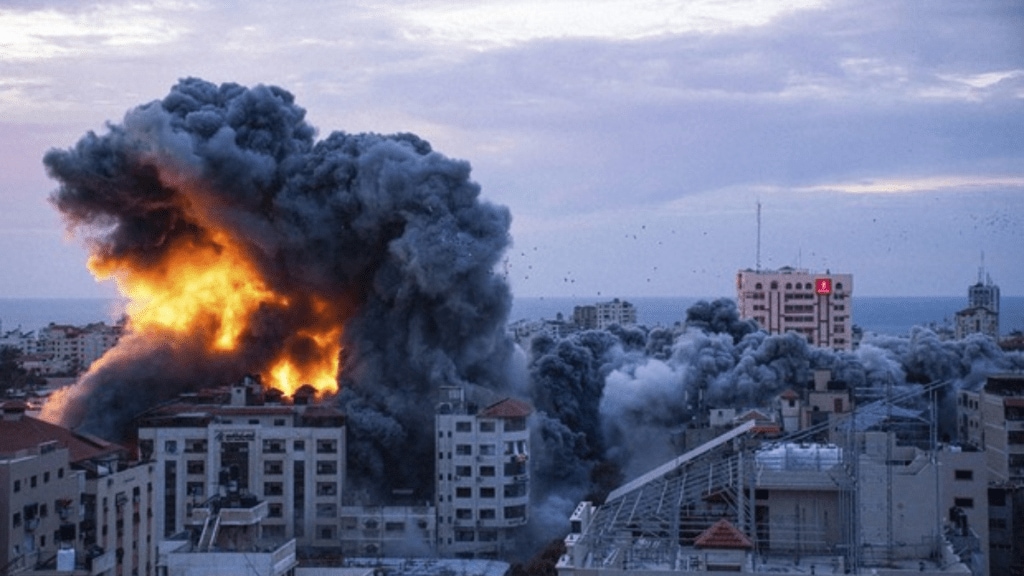Israeli airstrikes in Gaza overnight killed at least 19 Palestinians, according to medical sources on Saturday, as Israeli forces advanced deeper into Jabalia, a densely populated area where thousands of civilians are reportedly trapped. Jabalia, in northern Gaza, is the largest of the territory’s historic refugee camps and has been the focus of intensified Israeli military operations in recent days.
Residents reported relentless bombing from both the air and ground, with the Israeli military having targeted the area for the past week. While there has been no recent comment from Israel, military statements earlier indicated that operations in Jabalia were aimed at neutralising Hamas militants, seizing weapons, and dismantling militant infrastructure. According to Palestinian health officials, around 150 people have been killed in the Jabalia area since the offensive began.
On Friday, Israeli airstrikes hit four homes in Jabalia, killing about 20 people and injuring dozens more. Israeli troops have also moved into nearby towns such as Beit Hanoun and Beit Lahiya, ordering residents to evacuate and head south. However, Palestinian officials and the United Nations have voiced concerns, emphasising that no part of Gaza is truly safe due to ongoing attacks. They also warned of looming shortages of essential supplies such as food, fuel, and medical aid, raising fears of a potential famine in northern Gaza.
Israel’s campaign, aimed at eliminating Hamas, has claimed more than 42,000 Palestinian lives over the past year, according to Gaza’s health ministry. The conflict erupted following a Hamas-led attack on October 7, 2023, that killed 1,200 Israelis and saw 250 people taken hostage. In response to the latest Israeli operations, Hamas accused Israel of targeting civilians in Jabalia as retaliation for residents’ refusal to evacuate. Israel denies that civilians are being targeted, emphasising its focus on Hamas fighters.
Amid the violence, humanitarian challenges are growing. United Nations officials warned that Israel’s military actions in northern Gaza could disrupt a polio vaccination campaign. Despite the turmoil, Gaza’s health ministry announced that vaccinations for children would proceed, starting Monday in central Gaza and lasting three days. Humanitarian pauses are planned to allow access to vulnerable populations for vaccinations, following the recent detection of the poliovirus in Gaza for the first time in 25 years.
(With agency inputs)

